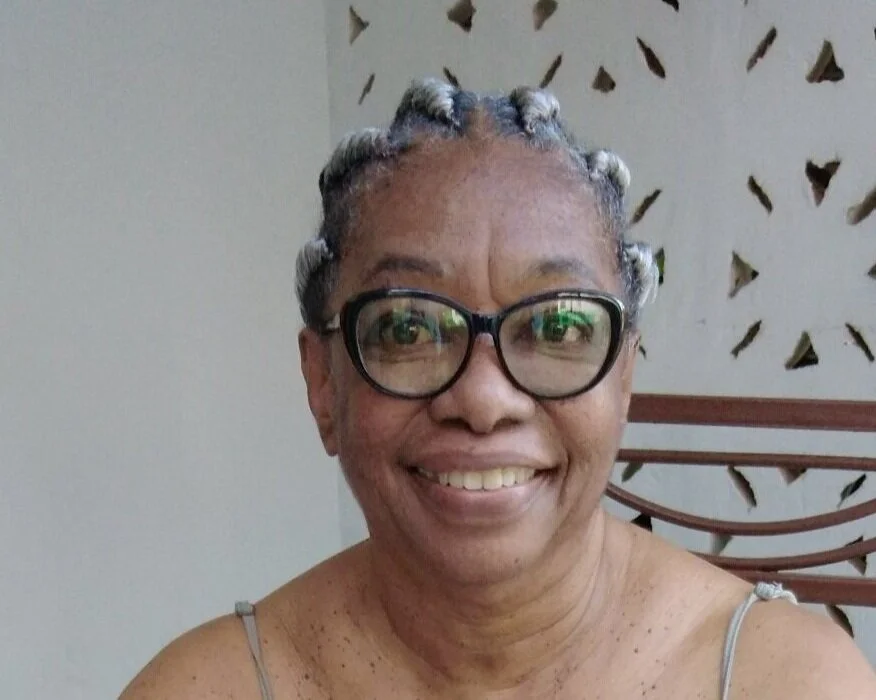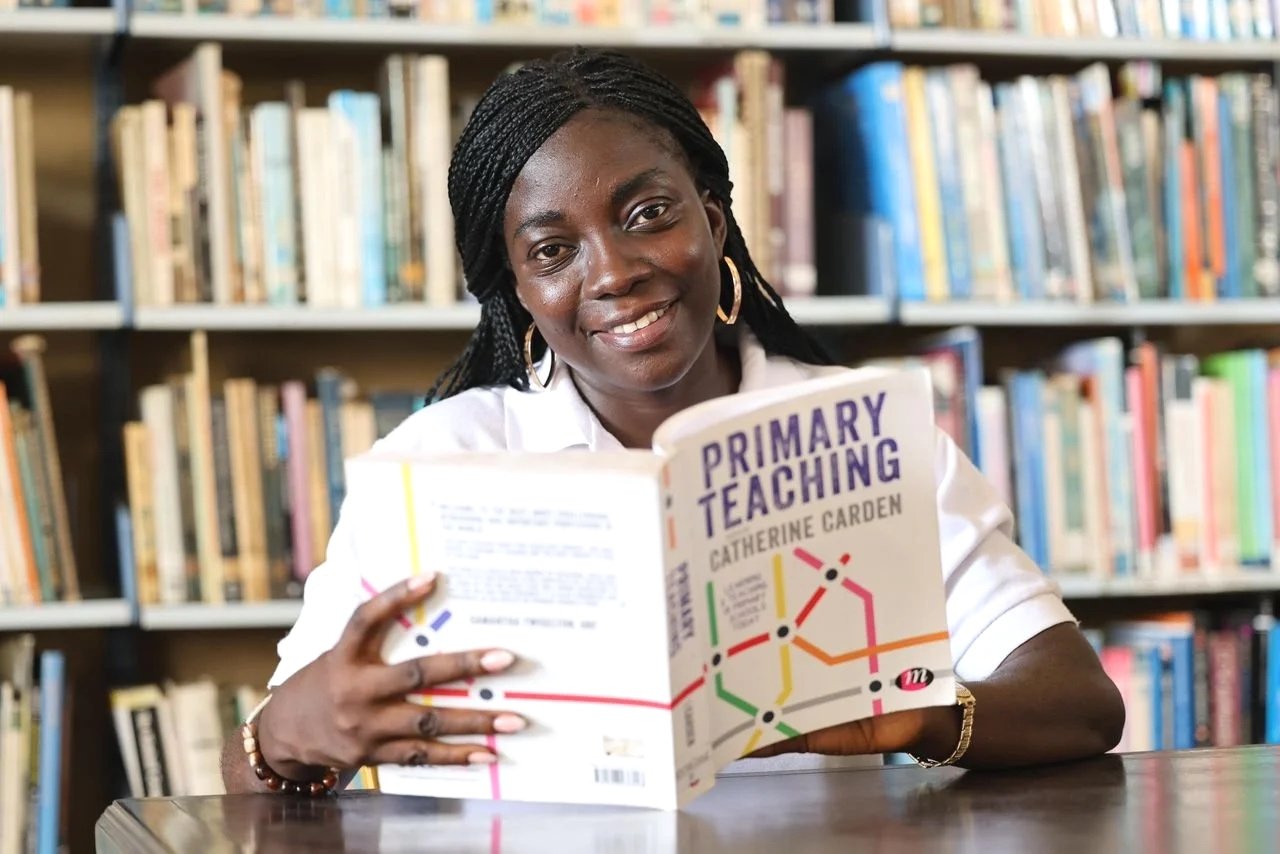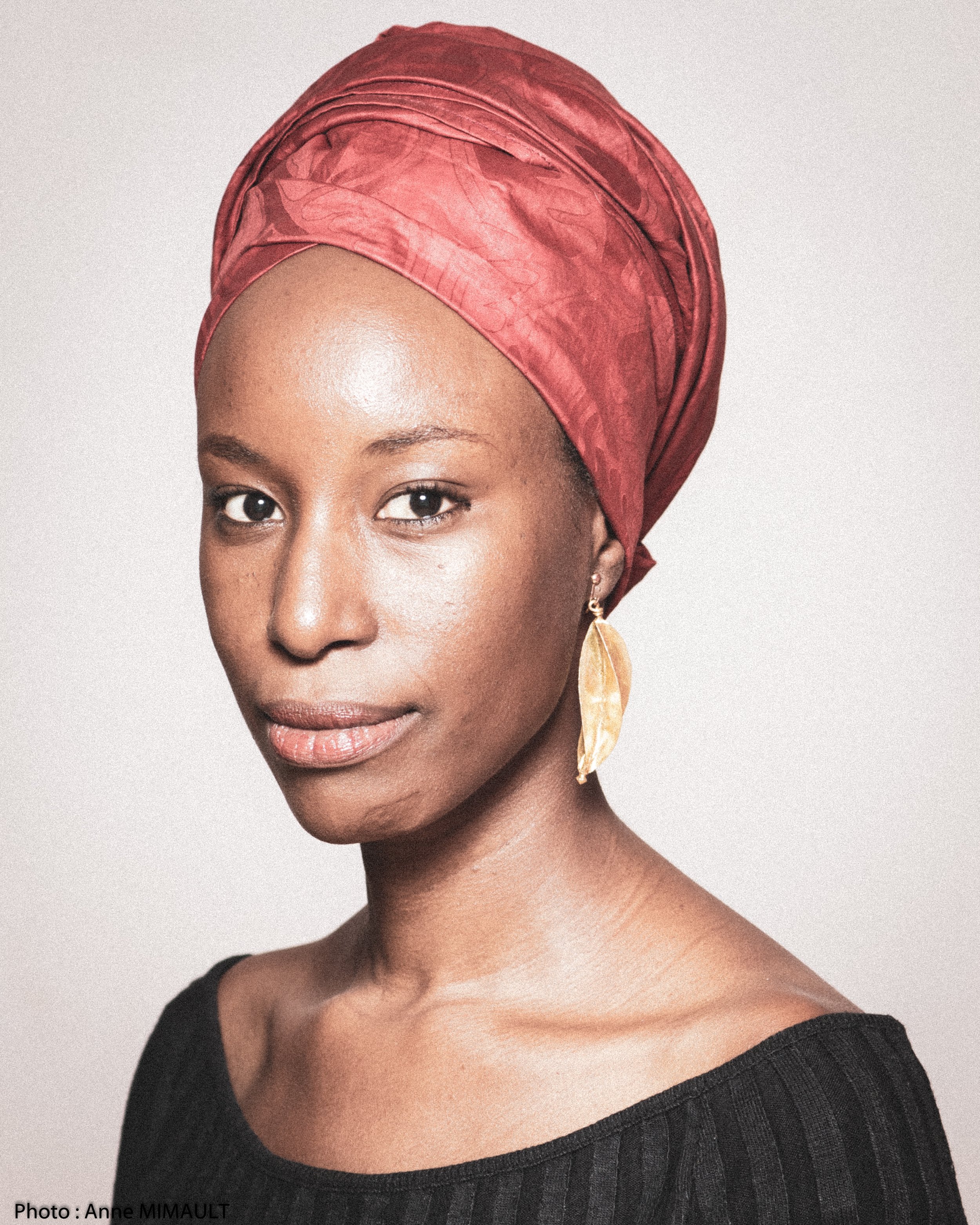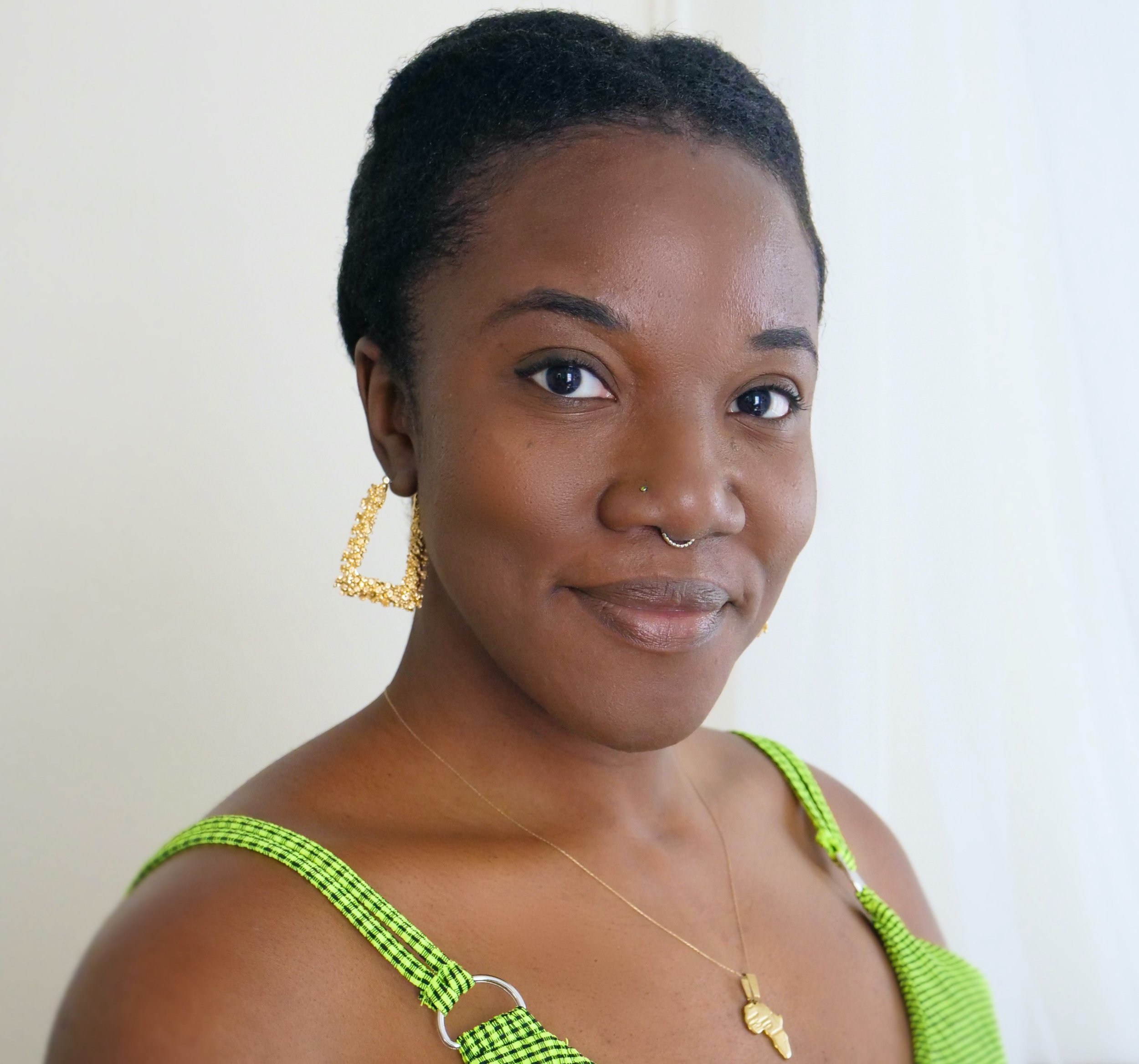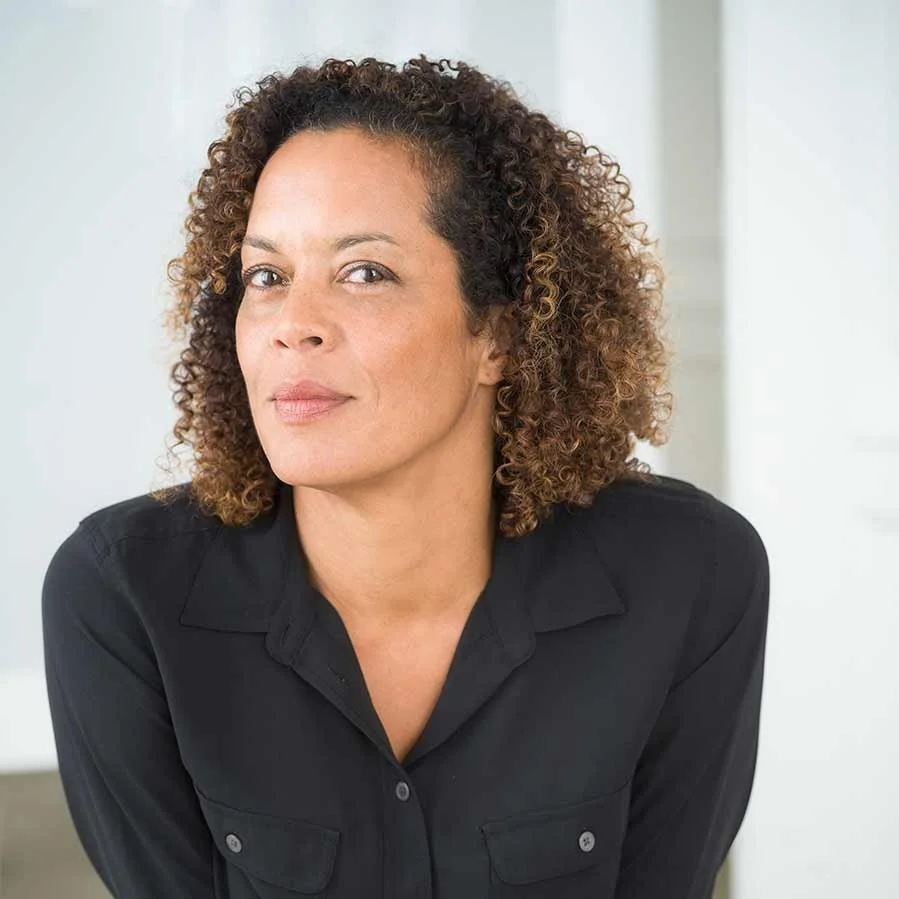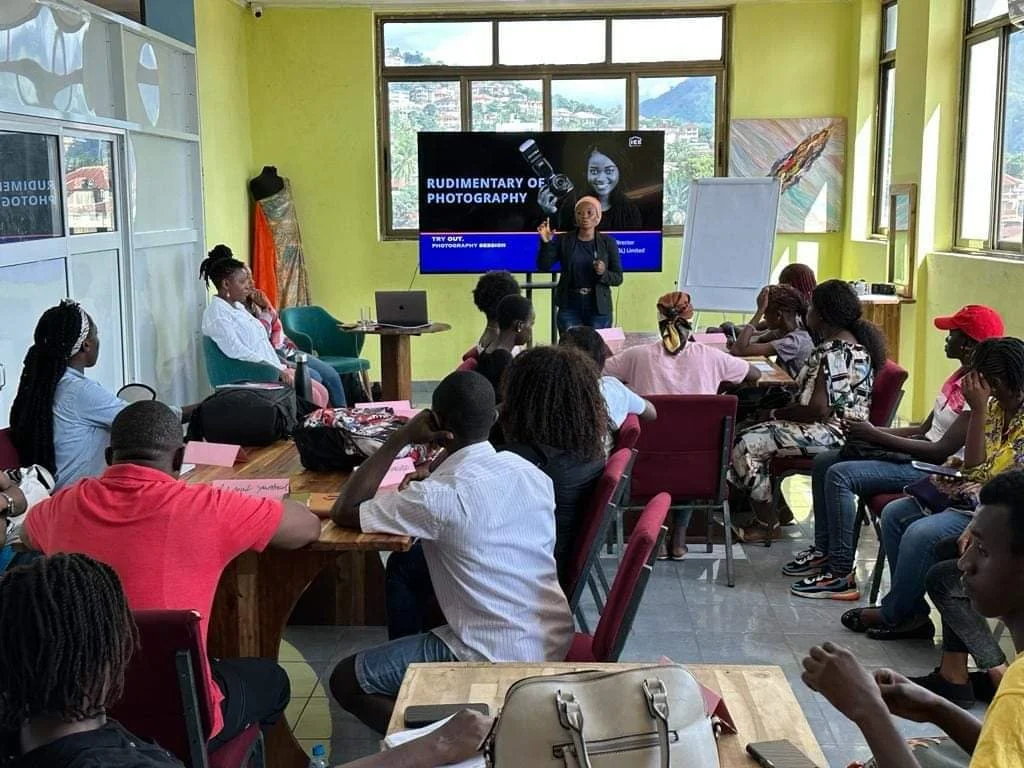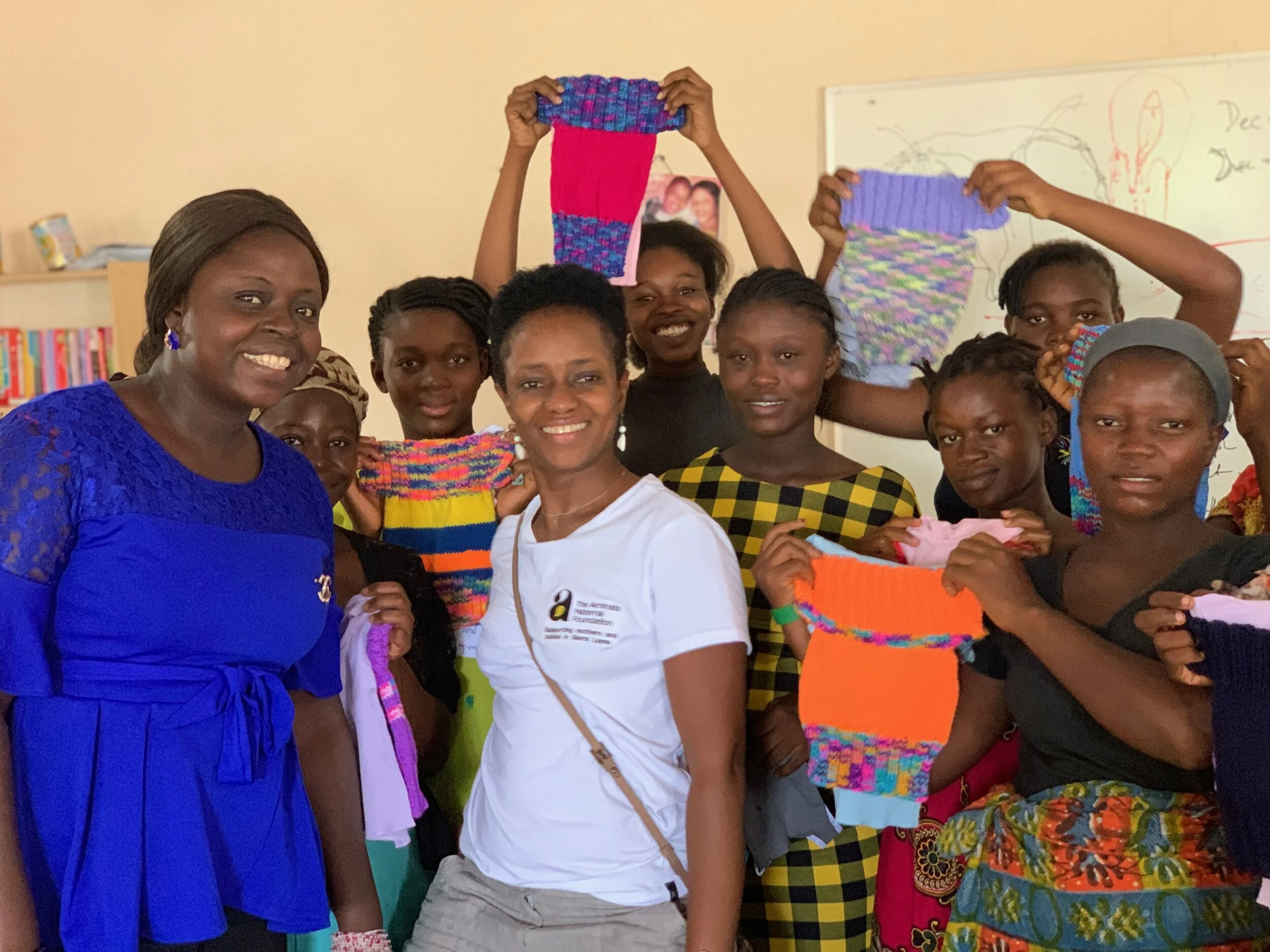
Sierra Leone at 60: Playwright Charlie Haffner Reflects
To celebrate 60 years after gaining independence, Poda-Poda Stories , interviewed Charlie Haffner, legendary Sierra Leonean playwright, founder of Freetong Players, and creator of popular radio drama Atunda Ayenda.
Charlie Haffner talked about the use of theatre arts over the years, and what Sierra Leoneans should reflect on after 60 years of gaining Independence.
Yema Lucilda Hunter on Documenting Sierra Leonean Lives through Fiction.
Yema Lucilda Hunter is a celebrated Sierra Leonean novelist, biographer, and librarian. Her work includes Road to Freedom, Bittersweet, Her name was Aina, and a biography: An African Treasure - in Search of Gladys Casely-Hayford. Lucilda Hunter was born and raised in Freetown, Sierra Leone. She attended the Annie Walsh Memorial School and studied in the United Kingdom, qualifying as a librarian. As a librarian, she worked for the the Ministry of Health and Sanitation in Sierra Leone, WHO, and was made a Fellow of the British Library Association, since renamed The Chartered Institute of Library and Information Professionals. As a writer, Yema Lucilda Hunter illustrates everyday Sierra Leonean life into rich prose, through her keen eye as a documentarian.
In this email interview with Poda-Poda Stories, Hunter shares the inspiration behind her writing.
Poda-Poda: Thank you for joining the Poda-Poda. Tell us about your journey as a writer and librarian? Did you always want to be a writer or was it something you fell into?
Yema Hunter (YH): I hesitate to call myself a writer as I don’t often feel compelled to put fingers to a keyboard, or pen to paper, though I always enjoyed and got good marks at school for what used to be called ‘Composition’. However, I AM the author of six novels and a work of non-fiction. My career as a professional librarian is what started it. While browsing the shelves of the Africana Collection at the National Library in Sierra Leone, I came across an old book in which a 19th Century visitor to Freetown mentioned a brief encounter with one of the black Nova Scotian settlers who arrived in the country in 1792. I learned some history of which I had been totally unaware and found it so fascinating that I felt other Sierra Leoneans, especially citizens of Freetown, might find it equally interesting, especially if it was conveyed in a non-scholarly manner. That was how I came to write my first novel, Road to Freedom, published in 1982. A new edition has recently been issued with the title Seeking Freedom.
Poda-Poda: What is the inspiration for writing your novels, particularly BitterSweet and Redemption Song?
YH: Sierra Leone, Freetown in particular, has inspired all my novels. The story line for Bittersweet occurred to me following the sudden death by road accident of a young cousin. I imagined the plight of a young wife and mother unexpectedly widowed, and the story unfolded from there. Redemption Song came twenty-five years later and was inspired by the civil war in Sierra Leone. Though the country is never mentioned and the course of events is ahistorical, anyone who knows Sierra Leone and experienced the war has no difficulty discovering the story’s setting.
Poda-Poda: In writing your novels, do you often find that you put a certain lens on, or a unique perspective? If so, what are they? What are some of the issues you want to highlight when writing?
YH: I write novels about Sierra Leoneans for Sierra Leoneans, thought it is gratifying when non-Sierra Leoneans enjoy them as well. My main characters are usually, Krios, descendants of the Liberated Africans who were settled in the Freetown area early in the 19th century. Of course, over the years, their interactions with members of the indigenous populations has become more frequent, hence no novel is only about Krios. My intention is to write stories about ordinary Sierra Leoneans living ordinary lives.
Poda-Poda: What is your writing process like? Do you have a certain pattern or routine?
YH: I am fairly disorganised . I have an idea for a story and once my first paragraph is clear in my mind, I plunge straight in, seeking necessary information and fleshing out the main characters as I go along. Progress of the story tends to be organic as I never know exactly what is going to happen until it does. I edit chapter by chapter and do a complete revision when the work is complete.
Poda-Poda: Poda-Poda Stories highlights authors from Sierra Leone, and it has often been difficult to discover the work of Sierra Leonean female writers pre the 21st century. You’ve also written a biography: An African Treasure, in Search of Gladys Casely-Hayford, 1904 – 1950, about Gladys Casely-Hayford, whose work isn’t quite well known, especially in Sierra Leone. How important is it to know about Gladys, and also to discover Sierra Leonean female authors during her time?
YH: Probably, there were not many published Sierra Leonean female writers up till the mid to late 20th Century. Adelaide Casely-Hayford and her daughter, Gladys are the only two pre-independence female writers I can think of. After independence, female writers of textbooks and supplementary readers for primary schools began to appear. Talabie Aisie Lucan and Melvine Stuart come to mind. I am not aware of any bibliography of Sierra Leonean female writers in the country, but I believe another Sierra Leone-born librarian, Wilma Jones, has produced one. However, she lives and works in the US and I am not aware that it has been formally published or is available in Sierra Leone. The problem is that Sierra Leone is not a nation of readers. Unless a literary work has been used as a school textbook, eg, my novel Road to Freedom, it remains largely unknown. I have the impression that most Sierra Leoneans acquainted with Road to Freedom, are not even aware that I have written other novels.
Poda-Poda: You’ve also had quite an illustrious career as a librarian. In your work, has accessing information become easier and what is the future of digital archiving in Africa especially?
YH: I retired more than twenty years ago, but even then, thanks to computer technology, accessing information had become far easier than it was at the start of my career. It has become easier still. Anybody can Google and search the internet in other ways. However, the skills of librarians and other information professionals are still needed for assessing the relevance and accuracy of information obtained. Digital archiving is a boon to developing countries where document preservation and storage has often been most unsatisfactory. I have been delighted to learn that archival digitization projects are being planned or are actually on course in Sierra Leone.
Poda-Poda: We always ask writers this question. How has writing saved your life?
YH: I would not say that, but it has certainly enriched my life, though sadly, not financially. I have always been an avid reader but writing my own books has forced me to widen the scope of my reading as works in progress often require considerable research.
30 Years Later: Joseph Kaifala on Remembrance and Healing.
Joseph Kaifala is an author, lawyer, human rights activist, and founder of the Jeneba Project. He is also the founder and principal of the Center for Memory and Reparations, an organization which facilitates remembrance and common narratives around the Sierra Leonean Civil War (1991 - 2002).
March 23rd, 2021 marks the 30th anniversary of the start of the 11 year civil war in Sierra Leone. In this interview, Joseph Kaifala talks about the importance of narrative for collective healing, the work of the center, and why it is so important for all Sierra Leoneans to learn from our history.
Poda-Poda Stories: Thank you Joseph for joining the Poda-Poda. Tell us about yourself and your work as a writer, scholar and lawyer.
Joseph Kaifala( JK) : I was born in Pendembu, Sierra Leone. I was trained as a lawyer. I am currently working as a writer and a historian, focusing on Sierra Leone history. I am the Principal of the Center for Memory and Reparations. Our work at the center is to facilitate remembrance and common narratives around the Sierra Leonean civil war.
Poda-Poda: Your memoir AdamaLui is a book about resilience, surviving trauma and finding hope. What inspired you to write that book? And what was the writing process like?
JK: As a survivor of the Sierra Leonean civil war, people wanted to hear my story, especially when I lived in the United States, but my experiences in the Sierra Leonean and Liberian civil wars were so complicated that it is often difficult to tell people the entire story in one sitting. So over the years, I decided that the best way to tell the story is to write a memoir, because I wanted my American friends to hear about my experiences. I lived in the United States where many young people had never been through such violence. I also believed that young Sierra Leoneans needed to hear a story of resilience and hope. I realized that a story like mine - coming from this same country after a decade of civil war, going to Norway and the United States to pursue my education - could inspire the next generation of Sierra Leoneans to keep working hard and become resilient in pursuing their dreams.
Poda-Poda: What was it like reliving some of those experiences?
JK: Many people who've read the memoir have called me to talk about its authenticity. And for me, that was very important to the storytelling. I decided that I was not going to sugarcoat anything. I was going to tell the raw stories as I experienced them. And that also meant reliving some of those experiences. It went two ways: It's painful to remember the past, but also remembering the past and reliving some of those experiences can help the individual healing process. It provided a lot of healing for me. I also believe that when other people read the memoir, they will be confident enough to share their stories because story-sharing has always been part of our culture, and it could help us relieve pain, because if we don't share our stories, we internalize them. And when we internalize them, the trauma remains.
Poda-Poda: I was at the premiere of your documentary Retracing Jeneba, and it's a film that shows some of the many atrocities that took place during the war. In many ways, we are still dealing with the trauma of the civil war. How can we as citizens collectively heal and rebuild?
JK: What we have to do is create an atmosphere in which people feel confident enough to share their story, and the rest of the society is willing to listen to them. Again, we cannot force people to recover from their trauma because the effect of a traumatic experience is different for every individual. But what we can do as citizens is to create a collective atmosphere in which people can share their story and victims are honored and respected. As of now in Sierra Leone, we don't have that atmosphere because people are preoccupied with other things, and talking about the war, the victims and the trauma, has been put behind us. Some people are unwilling to openly confront these issues because we don’t have an enabling environment.
What we are doing at the center is to compel this country to create moments of listening and sharing, to realize that if we are not bringing out our traumatic experiences, we are internalizing them and internalizing them doesn't make them go away. Pretending we don't remember the civil war is not going to eliminate its consequences.
And I think for instance, in my case, I have decided that it is important to use my traumatic past to help create a country in which other generations of children would not have to go through the kind of experiences we went through as children in this country. Citizenship requires that I take that obligation seriously, because we are often talking about leadership and the requirements of leadership. I believe that leaders are obliged to create a better country, to inspire people, to provide spaces for people to pursue their dreams. And my own way of doing that is to make sure I use this center to provide people with the confidence to share their experiences.
One of the reasons I created this center is that young people were making fun of amputees and victims of the civil war, because there was this lack of understanding between the younger generation and those who survived the brunt of our civil war. I launched the Sierra Leone Memory project back then to allow victims to tell their stories so that I could bring the conversation to a public space where we could all listen and hear what our fellow Sierra Leoneans were going through. That is one of the reasons I am persistently behind the Government of Sierra Leone to officially declare National Reconciliation Day and promote healing in Sierra Leone, because with their official declaration, we can come together as a country to engage in various methods of transitional justice and reconciliation.
Poda-Poda: You’ve mentioned a bit about your work with the Center for Memory and Reconciliation. What is your mission and what does the center hope to achieve?
JK: Our primary aim is to facilitate remembrance and common narratives around the Sierra Leonean civil war, which lasted between 1991 and 2002. What we're doing primarily is to lobby the government to declare National Reconciliation Day as recommended by the Truth and Reconciliation Commission (TRC). When that happens, the government of Sierra Leone can facilitate reconciliation activities and promote transitional justice to honor victims. As a center, we often promote what we call #DusomtinfoSalone on January 18 (which is supposed to be national reconciliation day), encouraging Sierra Leoneans to take 60 minutes of their day to do community service, because we want people to use the trauma of our past to do community good.
Moreover, the TRC identified about 99 mass graves and other sites around the country. Other sites simply means places like torture houses and other places of massacre like the Kailahun Slaughterhouse. What we are doing is to re-identify these mass graves and protect them, because ever since the TRC completed its work, nothing has been done about them, and many of these places have been abandoned. What we are doing is going to communities, identifying these mass graves, and protecting them so that they can become sites of conscience and remembrance. We also organize traditional burial rites, bringing communities together to conduct prayers for those they lost in the conflict, because many of us lost our relatives in the conflict without the opportunity to bury them and conduct traditional burial rites. Some of us don’t even know where our relatives were killed.
We are also currently planning a commemoration of March 23, 2021 - the 30th anniversary of the start of a decade-long civil war in this country. The aim is to really get Sierra Leoneans to pause and remember the issues surrounding the decade-long civil war, and to commit to building a better country.
Poda-Poda: I can't believe it's been 30 years. I don't think many people realize that.
JK: People forget that the civil war in this country started in 1991 and not in 1999. We are using this 30 year anniversary to dispel some of the myths surrounding the conflict itself. We have a podcast, Memba, which we use to present significant information about the conflict, because we have realized that people are also telling stories about the war that are not really fact-based. One of the issues that we have had to dispel is the idea that the attack on Bomaru on March 23, 1991 was conducted by Foday Sankoh. That is not true. Foday Sankoh attacked Sierra Leone a couple of weeks after the attack on March 23rd, which was really a criminal attack on Sierra Leone by National Patriotic Front of Liberia (NPFL) rebels from Liberia, on a raid authorized by Anthony Mekunagbe to retrieve a looted vehicle commandeered by Major Emmanuel Foday of the Sierra Leone Army. After that incident, Foday Sankoh and Charles Taylor agreed that it would be easy to invade Sierra Leone at that moment.
Poda-Poda: You have a podcast called Memba which is the storytelling platform for the Center, and you seem to merge advocacy and storytelling very well.
JK:Well, I think if you want to bring society along, you cannot work without certain elements of activism. And for me, that means primarily beginning with myself. This is why I started by telling my own story, so people can identify with me, and others can gain the confidence to share their own stories. Sometimes there are victims or perpetrators who think that their experiences are shameful for society, and one of the things I try to tell victims is that what they went through is not shameful. You are a victim, you are a survivor, and we want to hear your stories because we are all responsible for what happened to you. In Sierra Leone, for instance, the TRC has said that many perpetrators did not get to give their testimonies to the commission because they were afraid. So what ensued is that many of these perpetrators, like child soldiers, who were also victims, are now living with their trauma because they were never able to testify.
So activism is very important to the work we do, because we want to make sure that victims have what they need to survive by calling on the Government of Sierra Leone to implement the TRC recommendations. The TRC made specific recommendations to take care of certain categories of victims that have not been fully realized. Many amputees are still suffering in this country and I cannot do this work without having to plead on their behalf. That is why we combine activism with the transitional justice work that we do.
Poda-Poda: You have a span in your career as a writer. You’ve written a memoir, a children’s book, a history book and you are also a legal scholar. How do you navigate these different genres?
JK: Driven by my experiences in the Sierra Leonean and Liberian civil wars, I wanted to write a memoir. However, I realized I couldn't write a memoir without fully understanding the history of my country. So I decided to put that aside and spend four years researching the history of Sierra Leone. At the end of that, I wrote a history book, Free Slaves, Freetown, and the Sierra Leonean Civil War. In the beginning, I simply wanted to write about the civil war, but then I realized in the middle of it that I couldn't write about the civil war without providing a clear history of this country. So it ended up becoming a full history book of Sierra Leone.
There were also a lot of emotions I couldn’t describe in both books, so I decided to turn to poetry to make sense of my experiences. And that is what the poetry book is about. It is called Tutu's Rainbow World, because one of the individuals in our world who inspires me more than any other is Archbishop Desmond Tutu. He has a way of describing South Africa as a rainbow nation of diversity, and that is the theme of that poetry book. When Nelson Mandela was in prison Wole Soyinka wrote a poetry book he called Mandela’s Earth - I wanted to give Desmond Tutu the world. So, all of these books are intertwined in the sense that they are all geared towards making sense of Sierra Leone, making sense of my life as a Sierra Leonean, and surviving a decade of civil wars.
Poda-Poda: I always ask writers this question: How has writing saved your life?
JK: I think it was Shakespeare who said that “I write because there is a lot in me I cannot talk about.” When I'm able to express these things on paper, I can convey exactly how I'm feeling. One thing many people do not know about me is that I am an introvert. So, it is often better for me to write than to talk. But really, writing for me has been a way of healing. It gives me the opportunity to express my feelings, to share my hopes and dreams, and to make sure other people are inspired by it.
centerformemoryandreparations.org
For any enquiries about this interview, email editor@poda-poda.com.
Aminata Conteh-Biger on Healing Through Memoir
In 1999, Aminata Conteh-Biger was kidnapped from her family, and held captive by rebels during the civil war. Years later, she wrote a memoir Rising Heart, a memoir in which she shares the story of how she was rescued by UNHCR, found a new life in Australia, and giving back to Sierra Leone through her maternal health foundation. For Aminata Conteh-Biger, writing the memoir was a path to healing and a way to come to terms with what she faced during Sierra Leone’s civil war. Now, Aminata gives back to her country through the Aminata Maternal Foundation, to support maternal health in Sierra Leone. In this interview, Aminata Conteh-Biger shares how she rebuilt her life as a refugee, and wrote through trauma.
Poda-Poda:Thank you for granting us this interview. Tell us about yourself, your background, and your journey as a writer.
Aminata Conteh-Biger: I was born in Freetown and grew up in Kissy. I was raised by my father Pa Conteh, along with my 3 siblings. In 1999, I was kidnapped by the rebels, torn from my father’s hand. I was held by the rebels for months and released as part of an exchange for supplies. In 2020, I released my memoir, Rising Heart, with Pan Macmillan Australia. I wrote Rising Heart with my ghost writer Juliet Rieden, a highly respected journalist and author. I always wanted to write a book, and had many offers to do so over the years, but I did not want to do it until I had given something back to my home country Sierra Leone.
Poda-Poda: Tells us about your memoir, Rising Heart. What inspired you to write it and share your story?
ACB: I had always wanted to tell my story. I wanted to write it for the women of Sierra Leone who experienced the same as what I went through, and for the men who committed the atrocities against us to understand what they took from us. I also wanted to write it to show the world the realities of war and conflict – and the ongoing experience - of African nations. I feel very strongly there is not nearly enough general awareness of the challenges endured by African people, both now and in recent and past history.
Poda-Poda: We recently commemorated the National Day of Reconciliation in Sierra Leone on January 18th. You have shared your story through your memoir. For many survivors of the war, sharing the story of what happened to them is a difficult process. We do not have adequate psychosocial services in Sierra Leone to fully deal with the trauma of war amputees, victims of sexual violence, and refugees. What can we do, as a society, to help heal through our trauma, even when we lack those professional resources?
ACB: The answer to this is in the government. It is the duty and responsibility of our leaders to look after the wellbeing of their people. People in a position of power must create and make available safe spaces for the vulnerable, in order to allow them to live their best life.
In a country like Sierra Leone, where there is such recent national trauma, there must be assistance and services for them. Current services in Sierra Leone are not strong and there is one major reason why. There is a lack of acknowledgement and awareness of the war and its impact, not just from the government, but from the population as a whole.
Poda-Poda: There was so much unimaginable trauma because of the war, and so many of us still carry that and walk with that. How can we carry that trauma, and still try to change the story of our country for good?
ACB: This is difficult to answer, as we Sierra Leoneans can’t even face the truth of what happened to us. I have witnessed for myself the lack of knowledge young people have of recent events.
This lack of knowledge is because the previous generation, the people who lived through it, do not discuss the realities of what happened. So, how can younger people learn their own country’s history? As a nation, we cannot heal from trauma when the events and actions that caused the trauma are not acknowledged, let alone discussed amongst families or taught in schools.
Africans are so strong, and have faced so much adversity. I feel this inner strength needs to be applied to having uncomfortable, upsetting conversations in order to change the story of our country for good. Even here in Australia, where Sierra Leoneans support my foundation work, I promise you, maybe only two Sierra Leoneans would have bought my book, Rising Heart. They are scared to face my story because it will remind them of theirs.
Poda-Poda: Tell us about your work with maternal and child health in Sierra Leone. How did that come about and what are your plans for your organization?
ACB: The Aminata Maternal Foundation came about following my near-death experience while giving birth to my daughter Sarafina in 2012. Sarafina suffered from shoulder dystocia at the time.
During my pregnancy and Sarafina’s birth, I had access to high-quality healthcare here in Australia, like all women do. This compelled me to give back to the women and girls of Sierra Leone and help to improve the unacceptable maternal health and infant mortality rates. I immediately felt a sense of responsibility. My papa always taught us, “we get, we must give back”. He showed his children that it is more of a blessing to give than to receive. I do not have any family in Sierra Leone and this actually inspired me to go back home to contribute, especially because of my two children, Sarafina and Matisse. I want them to know where their mama comes from because I incredibly proud of my homeland Sierra Leone.
My vision now is to buy the hotel in Freetown my father owned and make it a hospital. But before then, my goal is to get as many midwives as possible trained, and hopefully open a children’s ward in the Aberdeen Women’s Centre so the staff can increase their capacity for check-ups and vaccines. My foundation has been working with the Aberdeen Women’s Centre since 2014, but I need the government to help us get this land. The funds are ready but we need land.
Poda-Poda: How did writing your story save your life?
ACB: It didn’t save my life. However, writing my book was a very important process, as it allowed me to establish the fact that I own my story – my story does not own me. I am not ashamed of what happened to me. I am proud of my scars because they have shaped and continue to shape the human being that I am. I always knew I was born to do something good and greater. My grandpa and my older brother, Alieu, always spoke so powerfully on my life ever since I was a baby. So despite my story, I was born for something greater, and I’ve always believed it is as a humanitarian.
Find out more about the Aminata Maternal Foundation at aminatamaternalfoundation.org

